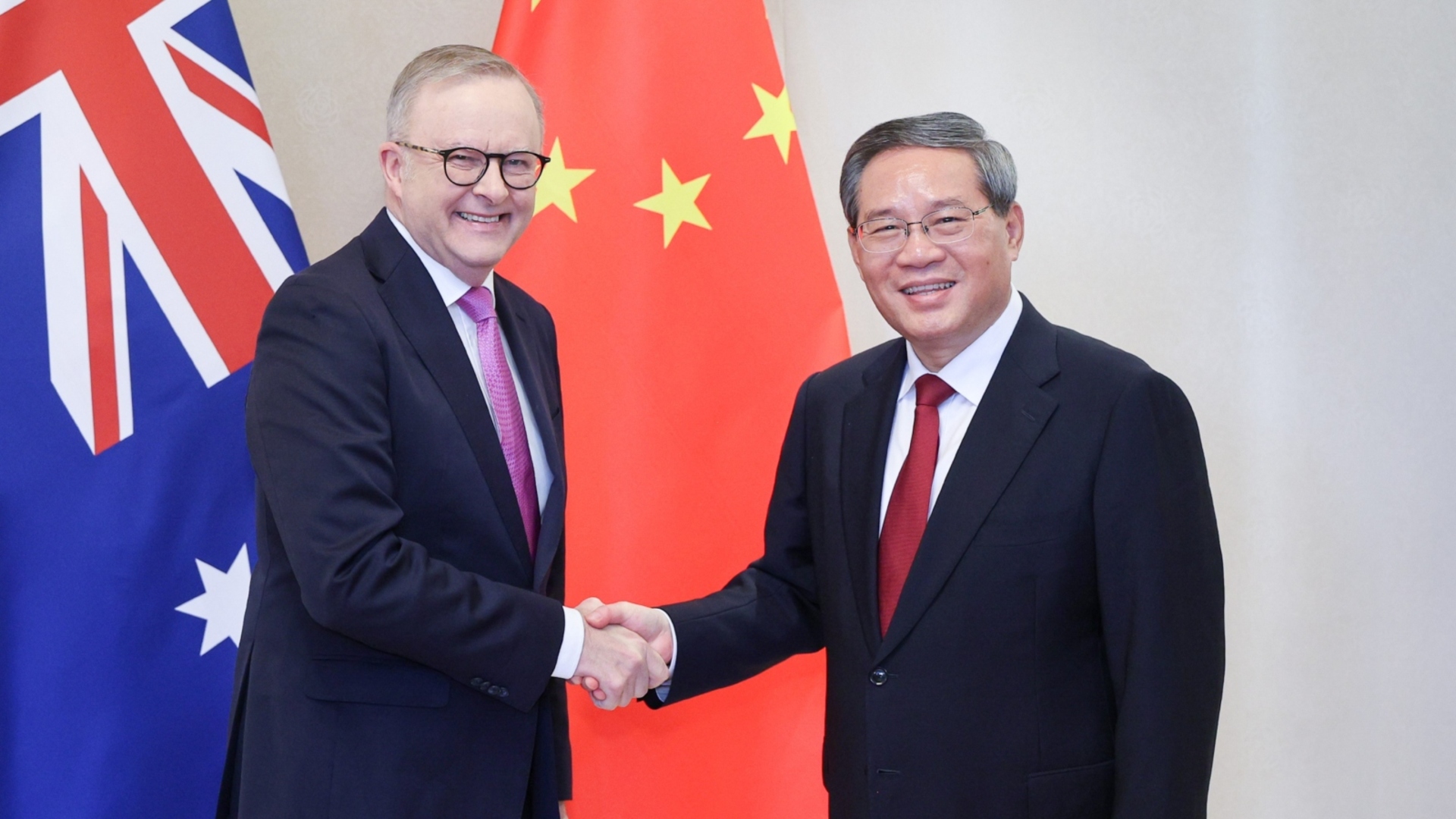U.S. Risks Straining Ties With Australia by Pushing for Taiwan Conflict Commitment
U.S. Risks Straining Ties With Australia by Pushing for Taiwan Conflict Commitment
By
David Goldfarb
Last updated:
July 16, 2025
First Published:
July 16, 2025

Photo: The Courier Mail
U.S. Pressure on Australia Over Taiwan Could Damage Longstanding Alliance, Expert Warns
The United States may be jeopardizing its historically strong relationship with Australia by pushing Canberra to pre-commit military support in the event of a conflict with China over Taiwan, according to Evan Feigenbaum, Vice President for Studies at the Carnegie Endowment for International Peace.
Feigenbaum cautioned that while the U.S. has legitimate security interests in the Indo-Pacific, its insistence on a clear military alignment from Australia could undermine diplomatic trust and disrespect Australia’s strategic autonomy.
“Australian governments do not outsource sovereign choices about where Australian military assets can and can’t or will and won’t be deployed,” Feigenbaum said during a recent policy forum.
Background: Rising U.S.-China Tensions Over Taiwan
Tensions between the U.S. and China have escalated over Taiwan, which Beijing views as a breakaway province. The U.S. does not recognize Taiwan as an independent nation but maintains unofficial ties and supplies military aid under the Taiwan Relations Act.
With Chinese military drills intensifying near Taiwanese waters and U.S. naval presence increasing in the South China Sea, speculation has grown over the potential for a military conflict in the Indo-Pacific. Against this backdrop, the Biden administration has sought clarity from regional allies about their potential support in a worst-case scenario.
Australia, one of the Five Eyes intelligence partners and a long-time strategic ally of the U.S., has been viewed as a key player in any Pacific security coalition. But Canberra has avoided making specific military commitments, especially when it comes to Taiwan.
Sovereignty vs. Alliance: The Australian Dilemma
Feigenbaum emphasized that while Australia remains a committed partner in regional security cooperation, including through AUKUS and QUAD frameworks, it maintains a fierce independence when it comes to deploying its military assets.
“Asking Australia to pre-commit to actions before a conflict has even begun risks placing them in an impossible position—one that could weaken domestic consensus and harm bilateral trust,” Feigenbaum noted.
This sentiment is echoed by several Australian defense analysts, who argue that open-ended commitments reduce Australia’s flexibility and could provoke unnecessary political backlash at home.
In fact, former Australian Prime Minister Paul Keating recently criticized the country’s alignment with U.S. Taiwan policy, calling it "reckless" and "not in Australia's national interest."
Strains Beneath the Surface
Despite strong public rhetoric about unity and partnership, recent diplomatic leaks and policy papers suggest that Australian officials are increasingly wary of being drawn too deeply into a potential Taiwan conflict.
The country has already boosted defense spending by nearly 20% in recent years and committed to building nuclear-powered submarines under AUKUS, but remains deliberately ambiguous about where it would draw red lines in a regional conflict.
Feigenbaum’s comments reflect growing concerns that if the U.S. continues to push too hard, it could alienate key allies and fracture consensus within existing security frameworks.
Final Thoughts: A Test of Balance and Diplomacy
As geopolitical dynamics shift rapidly in the Indo-Pacific, the U.S. must walk a delicate line between securing alliances and respecting national sovereignty. For Australia, maintaining a nuanced and sovereign foreign policy—particularly on Taiwan—remains central to its strategic identity.
“The strength of the U.S.-Australia relationship lies in mutual respect, not blind alignment,” Feigenbaum concluded.
With China’s influence rising and U.S. demands growing, how Canberra navigates this high-stakes diplomacy may define the next era of its global role. Likewise, how Washington listens and adapts could determine whether it preserves or undermines one of its closest alliances in the region.
Popular articles
Subscribe to unlock premium content
Kylie Jenner’s $420M Beauty Empire Unravels: Inside the Stunning Fall of a Social Media Mogul

Britain’s Economic Decline: From Global Powerhouse to Financial Strain

Trapped by Perfection: How AI Beauty Filters Are Rewiring Our Faces—and Our Minds

Kylie Jenner’s $420M Beauty Empire Unravels: Inside the Stunning Fall of a Social Media Mogul

Britain’s Economic Decline: From Global Powerhouse to Financial Strain

Kylie Jenner’s $420M Beauty Empire Unravels: Inside the Stunning Fall of a Social Media Mogul









